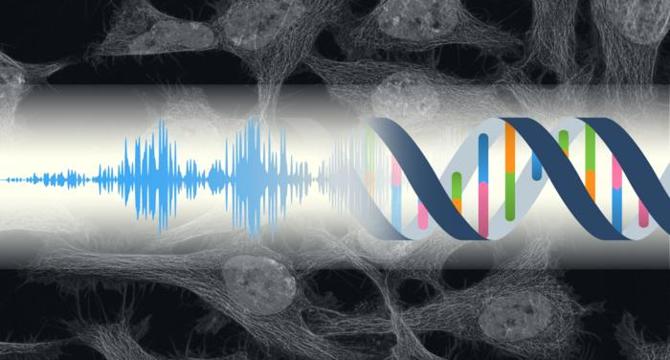Bioengineer
4d
72

Image Credit: Bioengineer
Your cells can listen to this news headline.
- A study from Kyoto University reveals that human cells can perceive sound, challenging traditional beliefs and expanding understanding of cellular sensory perception.
- Researchers exposed cultured cells to controlled acoustic waves, finding approximately 190 genes sensitive to sound modulation and uncovering various cellular activities affected by sound stimulation.
- Sound was shown to suppress adipocyte differentiation, offering potential implications for biomedical research by suggesting sound as a non-invasive method to influence cellular processes.
- The study elucidated how acoustic stimulation alters cell adhesion properties and signal transduction pathways, outlining a new mechanistic framework for understanding cellular responses to sound waves.
- This research indicates a paradigm shift in perceiving sound, extending into cellular realms and proposing sound as a safe and effective tool in influencing cellular behavior for therapeutic purposes.
- By linking acoustic waves to gene expression modulation, the study enriches the field of mechanobiology and demonstrates the interdisciplinary nature of scientific inquiry bridging physics, biology, and medicine.
- Future explorations aim to understand how diverse cell types respond to acoustic stimulation and how tailored acoustic signals could impact regeneration, pathological cell differentiation, and immune responses.
- The implications of cellular acoustics extend beyond human health, potentially influencing developmental biology, neurobiology, and ecological interactions, unveiling an intriguing frontier in scientific research.
- Published in Communications Biology, this research, supported by Japanese funding bodies, highlights that cells actively engage with their acoustic environments, paving the way for innovative applications in health and science.
- This groundbreaking study suggests a transformative perspective where cells translate sound stimuli into biological processes, hinting at a future where sound waves can be utilized to enhance cellular function and promote health.
Read Full Article
4 Likes
For uninterrupted reading, download the app